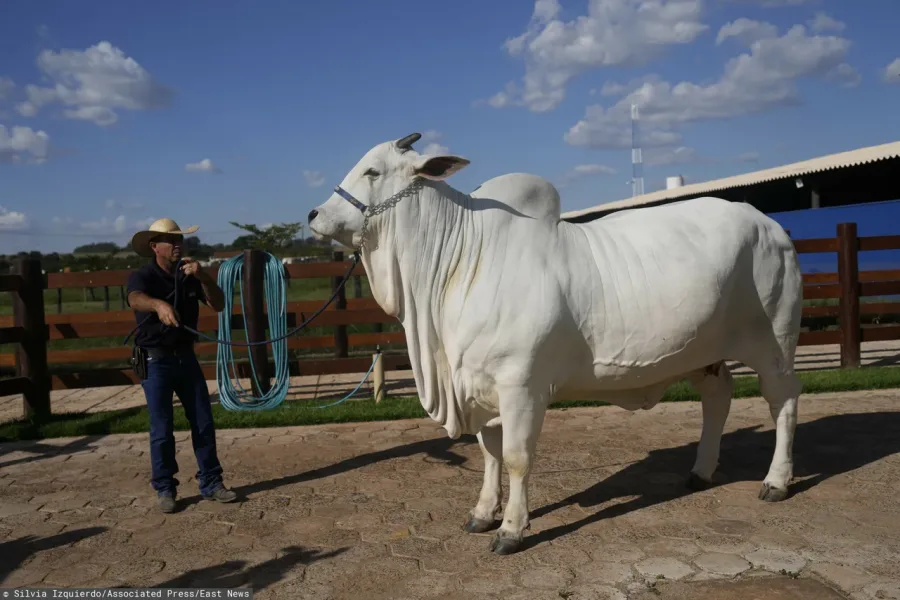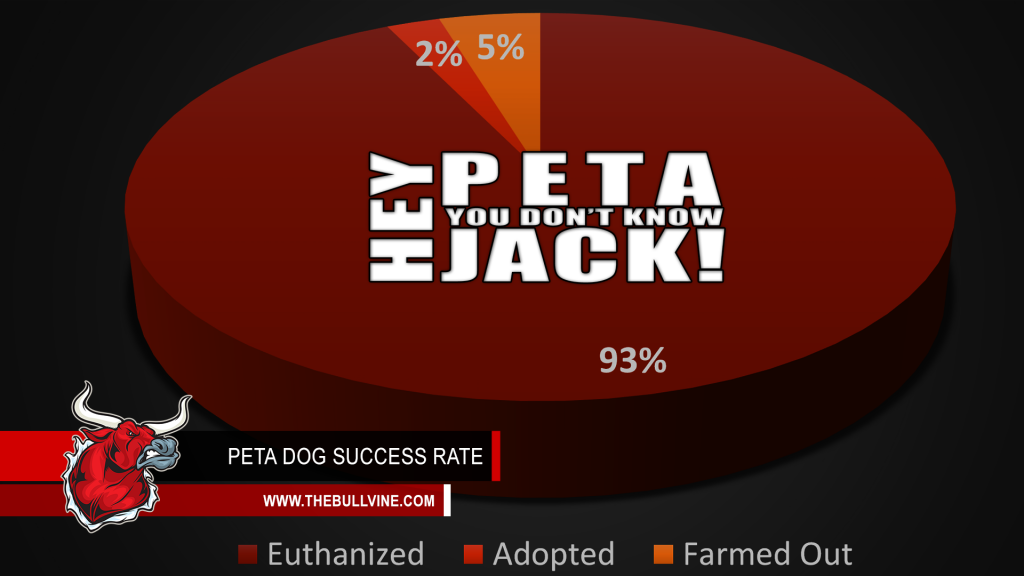Meet Viatine-19, the world’s priciest cow, valued at $4 million. Want to know why this Nelore beef cow from Brazil is so valuable? Keep reading to find out.

Selling for four million dollars, Viatine-19, a Nelore meat cow, has become historical in the energetic region of Minas Gerais, Brazil. This auction emphasizes the great importance of top-notch animals in the modern market.
An expert said, “Viatine-19 is not only a prized possession; she exemplifies genetic excellence in meat production.”
Among the beef breed globe, Viatine-19 stands out at 1100 kg (2420 lb). Guinness World Records confirms her record-setting price, which places her at the height of agricultural innovation and cattle breeding successes.
The Historic Significance and Modern Triumphs of the Nelore Breed
A Legacy of Resilience and Adaptability: Originating in the Ongole cattle of India, the Nelore beef breed has intense physicality and flexibility. Originally imported to Brazil in the early 1800s, these precisely bred cattle were meant to flourish in Brazil’s challenging conditions. Renowned for their robustness, Nelore cattle can withstand tropical temperatures and fight infections and heat stress. Their unique characteristics—heat tolerance, disease resistance, and grazing adaptability—significantly improve their economic worth.
Particularly beneficial for meat production, the Nelore breed shows a remarkable development rate and excellent feed conversion efficiency. With relatively modest feed consumption, they may reach notable body bulk; their meat, known for its delicacy and taste, adds even more appeal to a worldwide market.
The breed’s success in Brazil is based on thorough genetic enhancements to maximize meat quality and production. Celebrating the greatest of Nelore genetics, annual events like ExpoZebu in Uberaba feature excellent specimens like Viatina-19, therefore highlighting the breed’s ideal. This continuous endeavor in improved cattle management and genetic purity strengthens Nelore’s great name.
The Distinctive Factors Elevating Viatina-19 to Unmatched Prestige
Viatina-19 is unique in her unmatched genetic background, amazing physical features, and illustrious past. Her family reflects Brazil’s tradition in cattle breeding as famed Nelore breeds recognized for exceptional meat quality date back from. She has a remarkable muscular composition and is double the weight of a usual adult of her breed at 1,101 kg. Her honors highlight her distinctions, including Miss South America from the Champions of the World event. Her reproductive capacity promises to create new benchmarks in cow breeding, even if she intends to sell her egg cells abroad. Viatina-19 personifies bovine brilliance.
The $4 Million Sale of Viatina-19
Catalyzing a New Era in the Beef Industry in Minas Gerais, BrazilSelling Viatina-19 for four million dollars significantly changes the cattle business. This deal emphasizes the increasing investment in premium cattle genetics, improving the Nelore breed’s value. Viatina-19’s genes, as a significant donor cow, will now affect ranchers and breeders worldwide, defining new benchmarks for meat output.
Economically, Viatina-19’s sales highlight the desire for beef breeds renowned for their meat quality and established new standards for cow pricing. This occasion also stimulated technological developments in animal genetics. Leading companies employing cloning and genetic manipulation to progress the sector include General Animal Genetics and Biotechnology.
Trade regulations among countries help Brazilian cattle genetics be more widely distributed. Leaders such as President Luiz Inacio Lula da Silva promote Brazilian beef globally, increasing economic possibilities through exports of superior cow egg cells. While this encourages international breeding projects, it raises questions about genetic diversity and the potential for spreading disease. However, overall, it strengthens the beef sector worldwide.
The sale of Viatina-19 marks a shift toward increased investment in genetics and breeding excellence, which will, therefore, influence market dynamics and raise industry standards worldwide rather than just a transaction.
Securing a Guinness World Record: A Mark of Unrivaled Distinction and Industry-Wide Impact
Getting into Guinness World Records reflects an unmatched degree of quality. For Viatine-19, her acknowledgment as the most valuable cow in the world highlights her natural worth and the influence of her breed and ancestry. The standards for this recognition include exact documentation and validation of her selling price, unique qualities, and history. This thorough approach guarantees the record’s integrity through independent reviews by witnesses and industry experts. Guinness adjudicators closely investigated Viatine-19’s case, looking at her ancestry, significant weight, and unusual sale price. Reaching this distinction highlights the Nelore breed and agriculture industry breakthroughs in cow breeding, strengthening Viatine-19’s reputation.
Minas Gerais: The Agricultural Heartland and Cattle Breeding Powerhouse of Brazil
Southeast Brazil’s Minas Gerais area stands out for its agricultural prowess and cattle ranching brilliance. It is a top center for beef cattle production because of its rich grounds and perfect grazing temperatures.
The province greatly influences the cattle business by hosting big farms supplying local and foreign markets. Its great importance in the worldwide beef industry is shown by its involvement in cattle contests.
Minas Gerais is committed to invention through sustainable farming and innovative genetic technology. This mix of history and modern technologies improves cow welfare and meat quality, fostering economic development in the beef sector.
The Bottom Line
The $4 million price tag of Viatina-19 emphasizes the changing dynamics of the beef sector, which is currently experiencing a shift towards increased investment in genetics and breeding excellence. This trend, exemplified by the sale of Viatina-19, highlights the value of the Nelore breed in Minas Gerais, Brazil. Emphasizing the breed’s importance, this record-breaking sale—documented by Guinness World Records—sets a new worldwide standard. Addressing environmental issues such as deforestation and methane emissions also clarifies difficulties, including keeping high-value animals and juggling economic viability for commercial producers. The sale of Viatina-19 highlights developments in genetics and breeding but also begs a review of beef sector profit policies and sustainability practices. This milestone might motivate ideas that combine environmental responsibility with financial success.
Key Takeaways:
- Record-breaking sale: Viatine-19 was sold for an astonishing $4 million, marking the highest price ever recorded for a cow.
- Breed excellence: As a Nelore beef breed, Viatine-19 exemplifies superior meat production qualities.
- Significant weight: Weighing in at 1100 kg (2420 lb), she epitomizes robust and optimal cattle health.
- Guinness World Record: Accredited by Guinness World Records, her sale is a hallmark of recognition and achievement.
- Agricultural prowess: Housed in Minas Gerais, Viatine-19 represents the culmination of Brazilian excellence in cattle breeding.
Summary:
Viatine-19, a Nelore meat cow, was sold for four million dollars in Minas Gerais, Brazil, showcasing the importance of top-notch animals in the modern market and genetic excellence in meat production. Originating from the Ongole cattle of India, the Nelore breed has unique characteristics such as heat tolerance, disease resistance, and grazing adaptability, making them economically worth it. The sale of Viatina-19 will significantly change the cattle business, emphasizing the increasing investment in premium cattle genetics and improving the Nelore breed’s value. The sale will affect ranchers and breeders worldwide, defining new meat output benchmarks and setting new cow pricing standards. Trade regulations among countries encourage international breeding projects but raise questions about genetic diversity and disease spread. The sale of Viatina-19 marks a shift towards increased investment in genetics and breeding excellence, influencing market dynamics and raising industry standards worldwide.













